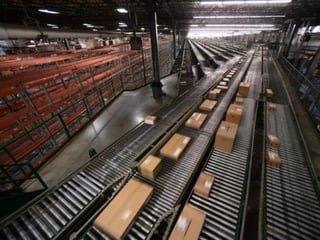Consumer responses to supply chain disruption are…
A new survey reveals the impact ongoing disruption in the supply chain is having on consumer behavior.
According to the U.S. Shopper Spotlight: o9 Consumer Survey 2023 from enterprise AI software platform provider o9, more than half of over 1,000 surveyed U.S. consumers (52%) indicated that they personally experienced supply chain disruptions in the last 12 months, and 49% reported issues with product availability for goods they typically purchase.
In response to supply chain disruption, one-third or more of respondents have stopped purchasing items due to cost increases (38%), started to do more comparison shopping (35%), and adjusted their shopping habits by prioritizing what products they need to purchase each month (33%).
The survey also indicates that consumers have varying degrees of confidence in supply chain performance, as 39% of respondents feel a lack of confidence in global supply chain performance 38% feel that supply chains are functioning well, and 24% feel uncertain about the functionality of global supply chains.
Respondents also believe that multiple external factors are disrupting supply chains and product availability. Close to six in 10 respondents (58%) believe that inflation is a key driver of supply chain disruption, while about half (49%) think that labor shortages (49%) and 42% feel that transportation shortages are major influences, and 40% cite geo-political factors as playing a role in supply chain disruptions.
Respondents have varied opinions about how long supply chain volatility will last. Slightly more than half (51%) believe supply chain disruptions will take more time to fix, 24% said they are confident that supply chain disruptions will be resolved soon, 13% feel that supply chain disruptions are here for the long term, and 12% are uncertain about the long-term durability of supply chain disruptions.
[Read more: How common are supply chain disruptions?]
“Retail and CPG sectors are certainly the most visible to consumers since we can immediately detect when supply chain issues arise and result in out-of-stock inventory,” said Igor Rikalo, president and COO at o9 Solutions. “Companies need to excel in predicting demand well ahead of when products will be available in stores and then synchronize production and logistics to ensure the right product is in the right quantity at the right store.”
Team Lewis, o9 Solutions’ public relations agency of record, surveyed the general population aged 18 and over across a census-balanced sample through an online survey fielded from June 30 to July 6, 2023. Survey respondents were independently sourced from Op4G, a market research company.







